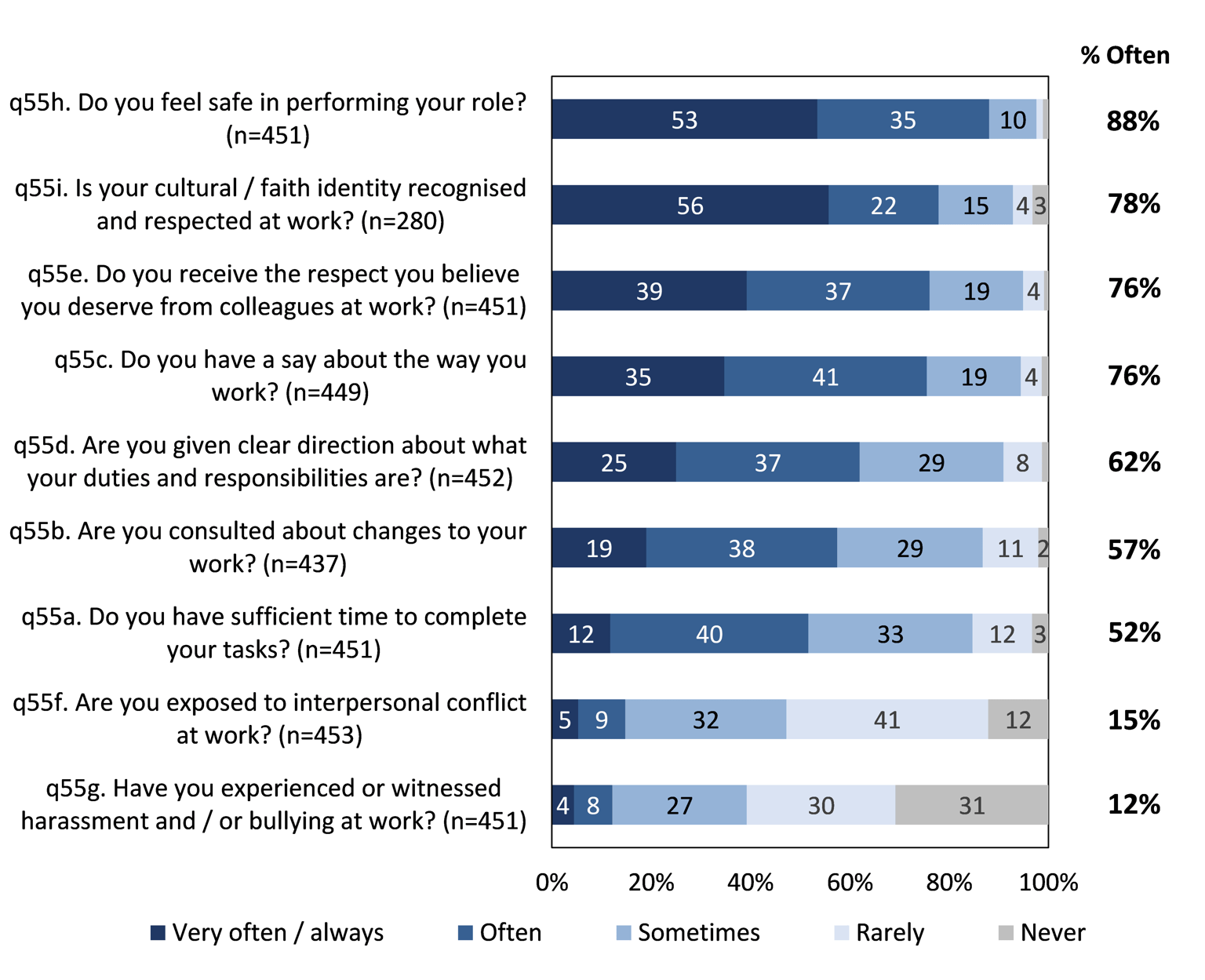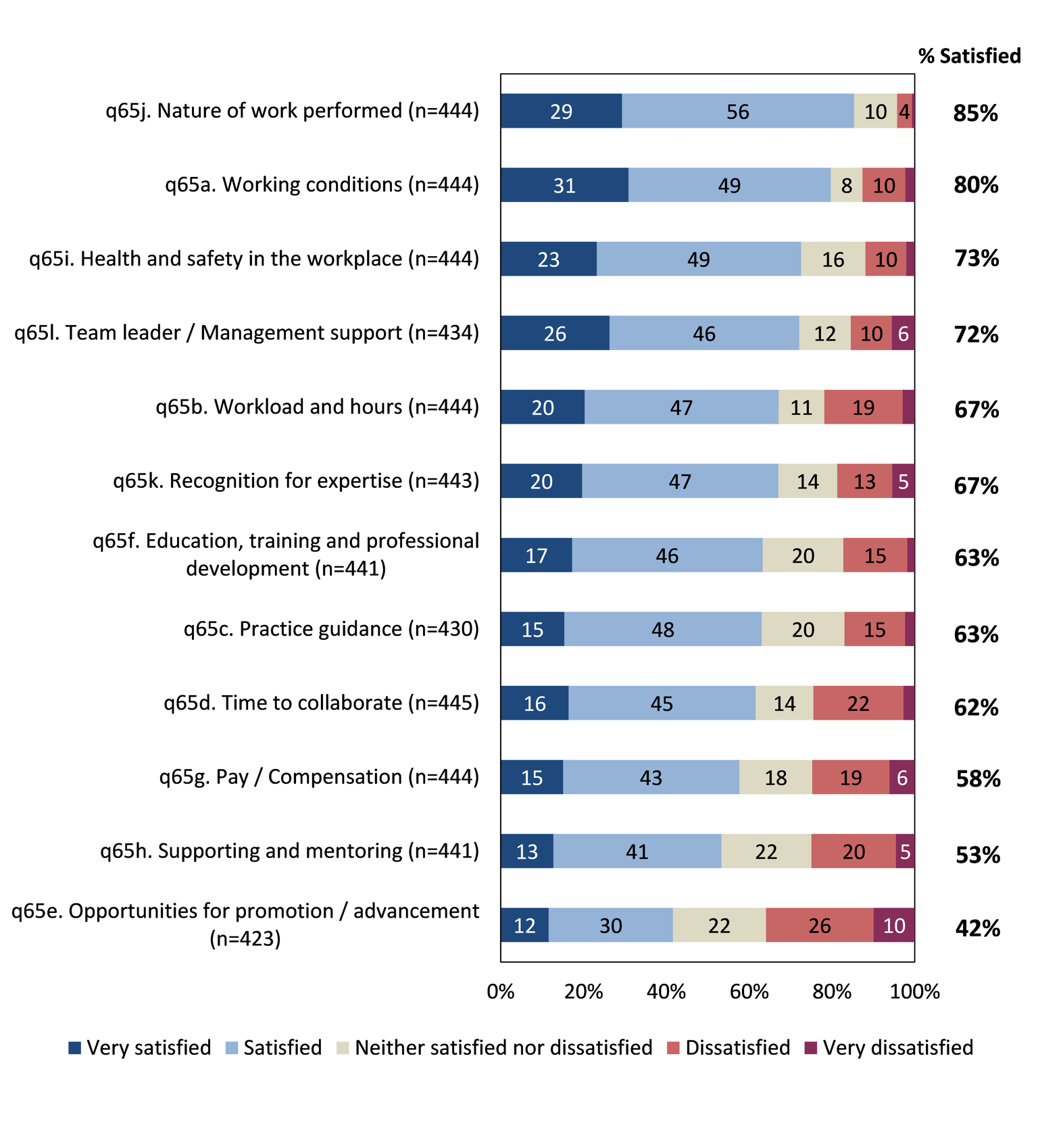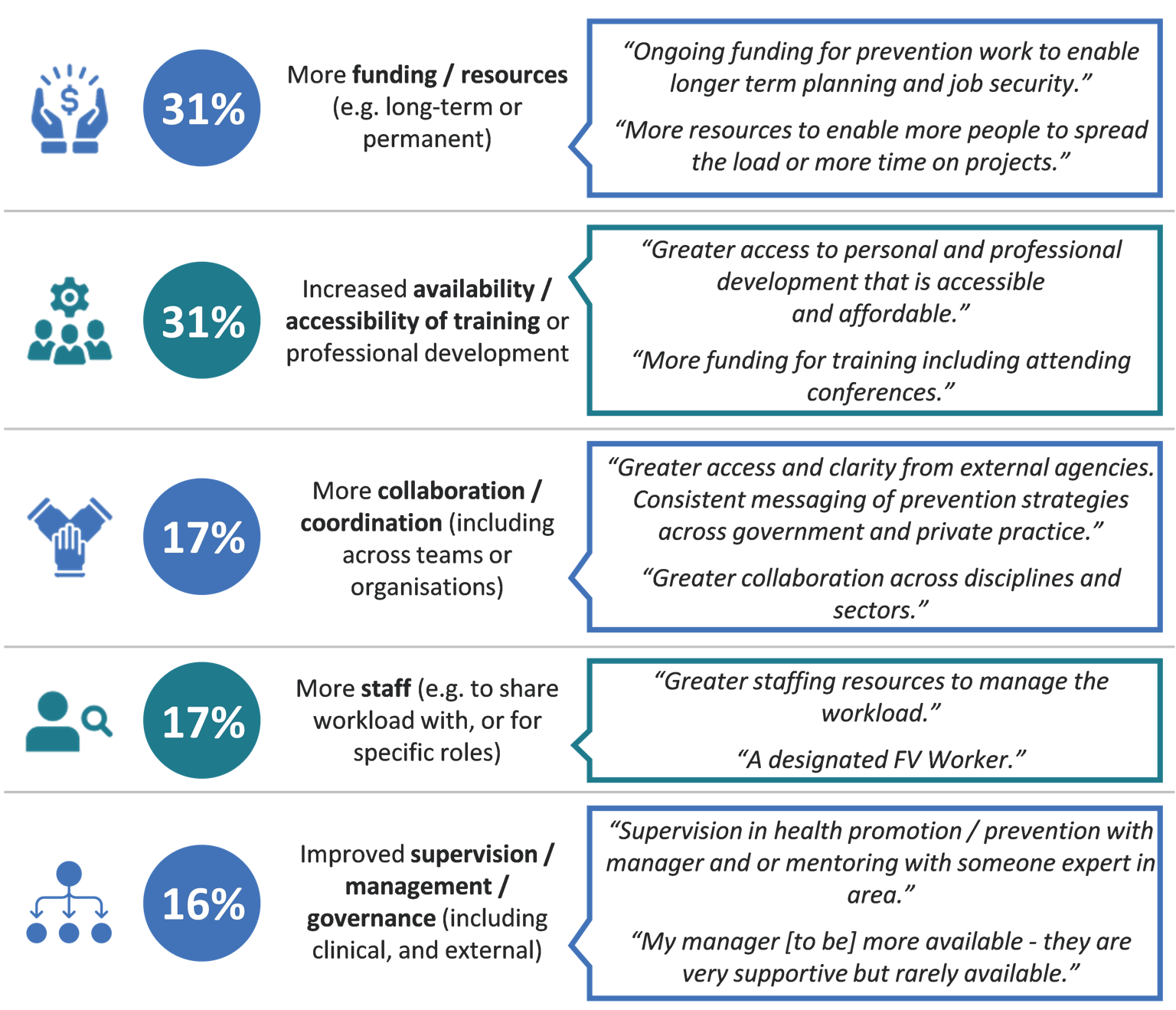Health and wellbeing is an important area of focus for all workforce types, however should be of particular focus for this workforce given various work-related stressors they may encounter. The information in this chapter may be used to improve understanding of the health and wellbeing of the workforce as a whole, assist in identifying any specific areas of focus, and inform forward-looking strategies to support its workers.
Overall, the results of both the Census and the initial consultation phase of the project suggested that many within this workforce experience stress due to high workload, with around half reporting that they only sometimes had sufficient time to complete their tasks.
Positive findings included the fact that most of the workforce indicated that they felt safe in performing their role, and many felt respected and fairly consulted when undertaking their work. Additionally, few were dissatisfied in their current role and most felt that they made a difference to people affected by family violence (45% felt they made a significant difference).
Satisfaction with role
Footnotes
- Q56. On average, how would you rate your level of work-related stress? (n=458)
- Q57. What is the primary cause(s) of your work-related stress? Multiple responses accepted (n=142)
- Backlash and resistance refer to any form of resistance toward gender equality.
- Q61. In your role, how often do you experience resistance or backlash in undertaking your work? (n=454)
- Q63. Do you have access to support to assist you if you encounter cases of family violence or disclosures, or resistance or backlash in your work? (n=400)
- Q67. How much difference do you think your work makes to people affected by family violence? (n=397)
Updated




